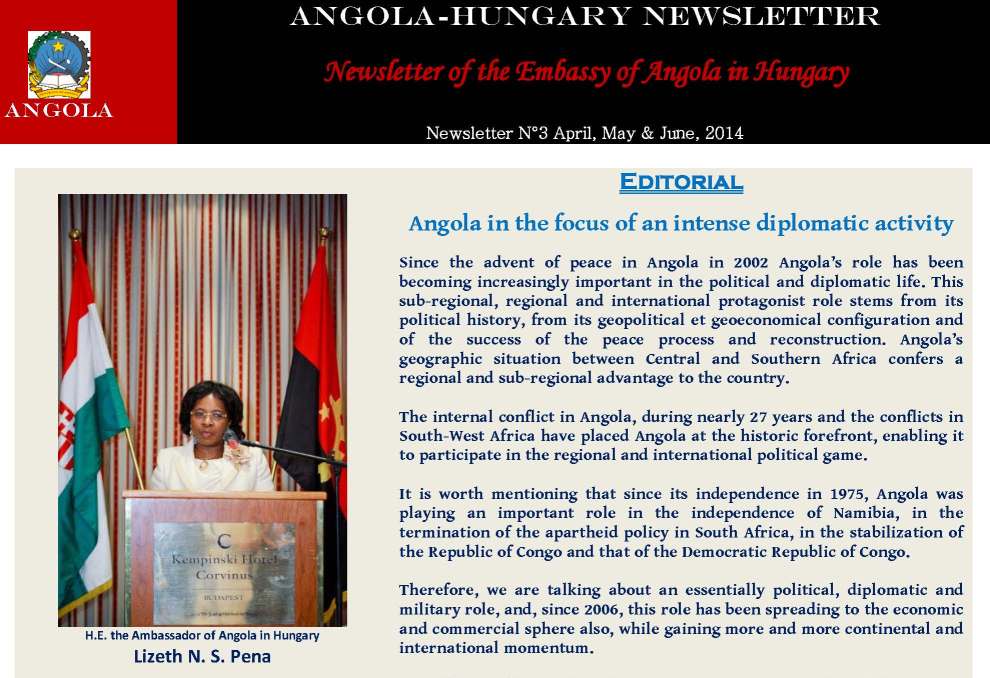Economy
Until the 1970s, Angola's economy was characterized as being predominantly agricultural, with coffee its main crop. Next came sugar cane, sisal, corn, coconut and peanut oil. Among the commercial crops, they produced mainly cotton and tobacco. The production of potatoes, rice, cocoa and banana was relatively important. The largest flocks were cattle, goats and pigs.
Angola is rich in minerals, especially diamonds, petroleum and iron ore; and also has deposits of copper, manganese, phosphates, salt, mica, lead, tin, gold, silver and platinum.
With the pacification of the country, Angola experiments various projects in the political, social and economic fields, to reorganize the spheres of society, providing tools able to leverage the country to high levels of growth, towards development. Among the projects, there is the National Development Plan (NDP). Among the projects, there is the National Development Plan (NDP). The period of implementation (2013-2017) of NDP prepared by the Angolan Executive, lies on three sustainable pillars – namely: stability (political, economic and social), growth (increase in the supply of goods and/or services quality to meet the needs of citizens) and employment (increase of production units for goods and or services) – as soon as this period ends, the degree of implementation will be evaluated, and the results obtained will surely have benefits for the society.
It is important to point out that, by initiating a series of reforms in the area of legislation, the Angolan Government intends to give signals to domestic and foreign investors that the legal framework and the Angolan economy are moving towards sustainability and diversification.
The fact that Angola has a huge potential in energy, agricultural and connectivity projects in means of transportation and communication, coupled with political and macroeconomic stability, improved access to international funding markets and a population that is estimated to grow, all these facts, encourage investment in various fields of the Angolan economy.
Today, anyone visiting Angola discovers a new country. More dynamic and secure with political and economic stability. From development’s point of view, Angola is experiencing the most prosperous time in its history. The Country came together to begin its rebuilding process. Angola has the characteristics of a country with great potential for development.
Political and economic stability has opened new and exciting opportunities to invest in the country. In short, all social, economic and political aspects are favorable to progress. That's how Angola presents a new reality to the world: working together today, to grow together tomorrow.
In recent years conditions have been created for the country to initiate a reform process, and Angola is gradually walking the path of development. The country offers a wide range of business opportunities that makes it extremely interesting compared to other realities of the African continent. The Government is carrying out a process of macroeconomic reform based on the attraction of foreign investment.
The New Law of Private Investment (NLPI) was recently published by Law n. º 20/11 of 20 May. The NLPI revoked the previous Law for Private Investment (Law n. º 11/03 of 13 May), as well as the provisions of the Law on Tax and Customs Incentives to Private Investment (Law n. º 17/03, 25 July) which cannot be made compatible with NLPI. The NLPI applies only to "qualified private investment" ie, investments whose value equals or exceeds $ 1 million.
Investments of less than USD 1 million, although they may be made, will not be subject to NLPI nor shall enjoy the benefits and privileges provided for therein, such as the right to repatriate profits and / or dividends and the possibility of being eligible for the award of tax and customs incentives. Investment projects approved under the old law on private investment continue to be governed by the law (and contract if any) in force on the date on which they were approved. However, the tax and customs incentives obtained by reference to these projects may not be extended.
For more information, visit the website of the angolan National Agency for Private Investment (ANIP) http://www.anip.co.ao.
FAIRS IN ANGOLA
Each year in July, takes place in Luanda, capital of Angola, the FILDA (Luanda International Fair) organized by the Industrials’ Association (AIA - Industrial Association of Angola), which is the main exhibition showcase and business exchange, an important promotional vehicle for companies wishing to introduce or consolidate first commercial presence on the market itself.
The FENAPRO (National Exhibition Production) is another predominantly national demonstration, which takes place annually in November in the same city of Luanda, also organized by the AIA.
In addition, there is a trade fair in agro-industrial sector, EXPO-Huila, held annually in the city of Lubango, organized by Agro-cattle Commercial and Industrial Association of Huila.



